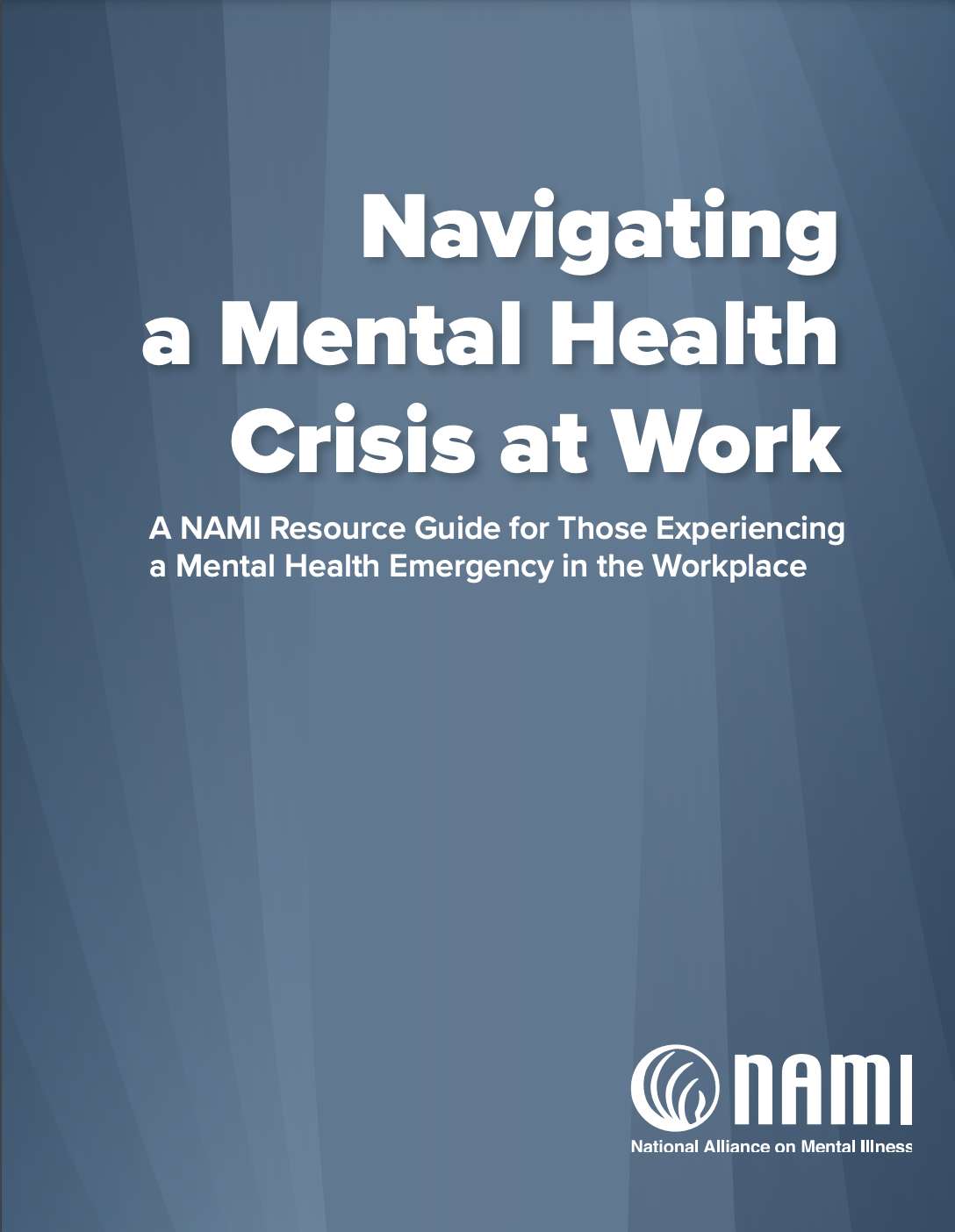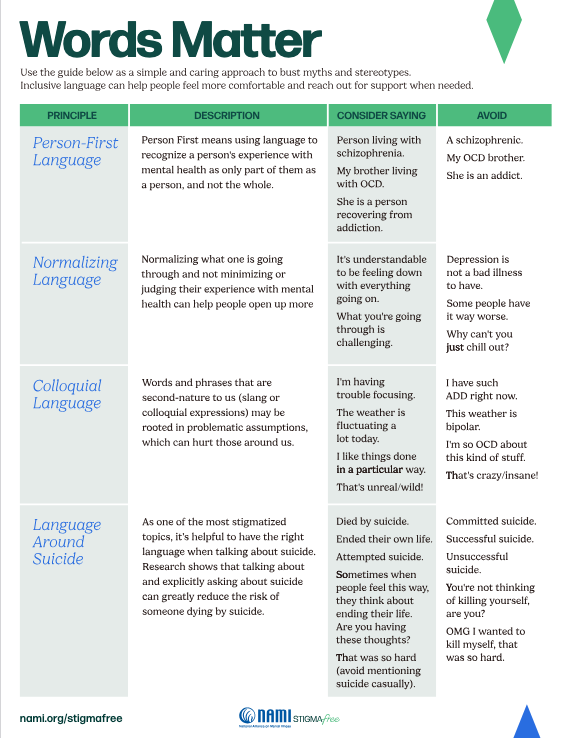What is Depression?
Depression is a common and treatable mental health condition that goes beyond occasional sadness. According to SAMHSA, 8.5% of all US adults experienced at least one depressive episode in 2023. It affects how you think, feel, and function in your daily life. Depression in the workplace may cause people to experience the following:
- Persistent sadness or a sense of hopelessness
- Tired and lacking motivation, even for activities once enjoyed
- Difficulty concentrating or making decisions
- Changes in appetite or sleep patterns
- Headaches, body pain, or other physical changes
- Feeling disconnected or withdrawn from others
What is Major Depressive Disorder with a Seasonal Pattern?
Seasons can impact people’s experiences with depression. Some people find that they are more likely to experience depression during late fall and winter seasons, although people can experience depression in any season. This is known as Major Depressive Disorder with a Seasonal Pattern (formerly known as seasonal affective disorder, or SAD.)
Risk Factors for Depression
- Family or personal history of depression
- Major life changes and increased stress, like career transitions, family conflict, death/loss, or having a baby
- Serious chronic illness
- Trauma, such as past abuse or a life-threatening event
- Substance misuse
Developing depression is not a sign of weakness or failure–it is a health condition just like any other.
How Depression Can Impact Your Work Day
Depression in the workplace can be challenging and impact work in these ways:
- Energy levels
- Focus and concentration
- Social interactions
- Decision-making
- Time management
Many people who live with depression do quite well at work and are productive team members. Learning to manage depression can help people develop or enhance important skills, such as:
- Empathy and sensitivity, contributing to inclusive and compassionate work environments
- Resilience and coping skills
- Self-awareness, leading to strong self-management
- Creative problem-solving
- Verbal and nonverbal communication skills
Tools to Manage Depression in the Workplace
Many people with depression thrive at work with few or no accommodations. You may wish to connect with your treatment provider for guidance in identifying accommodations that will help you succeed. Some common adaptations include:
- Flexible work arrangements so you can attend treatment appointments, therapy, or support groups.
- Temporary workload adjustment so you can ensure appropriate engagement on your tasks and deliverables.
- Access to a quiet workspace or noise-canceling headphones so you can concentrate better on work.
- Modified supervision to have more frequent check-ins on appropriate workload and maintaining connection.
Steps You Can Take to Seek Help
Remember, depression is treatable. Between 70% and 90% of people see an improvement in their symptoms or the symptoms disappear when treated.
- Talk to Someone You Trust: Reach out to a friend, family member, or a mental health professional. Even if you don’t talk about your symptoms, connecting with others can help battle those feelings of isolation. You don’t have to go through this alone.
- Know Your Company Resources: Check if your employer offers an Employee Assistance Program (EAP) or mental health benefits. Knowing your options is important, even if you aren’t ready to seek help.
- If an appointment with your EAP feels intimidating, begin by scheduling an appointment knowing you can cancel it later. You can always choose not to attend your session, but you may find once it’s on your calendar you’ll look forward to the help they can offer.
- Problem Solve with Your Manager (if comfortable): Connect with your treatment provider or another source (like the Job Accommodation Network) to learn about potential accommodations. Reflect on what support might be helpful and write down some thoughts about what you might want to explore with your manager. In the conversation, it is helpful to reassure your manager that you are confident you can perform the job functions well with the right support.
- Practice Self-Care: Make time for sleep, exercise, and connection with loved ones. Take breaks throughout the workday and treat yourself to small kindnesses, like a favorite drink or a picture for your workspace. Start small — progress takes time.
- Consider Professional Help: Therapy, counseling, and medication are effective treatments for depression. Many therapists offer free consultations, so you don’t have to commit to anything in the first appointment. Find your local NAMI to learn about no-cost classes and support groups offered in or near your community.
Asking for help is a sign of strength, not weakness. You’re not alone, and help is available.
More Resources for Managing Depression in the Workplace
- NAMI Depression and Major Depressive Disorder with a Seasonal Pattern webpages provide an overview of depression symptoms along with treatments and support available to those living with a depressive disorder. Also see the NAMI blog, like The Reality of “High Functioning” Depression.
- NAMI Peer-to-Peer Classes are a free, eight-session educational program for adults with mental health conditions who are looking to better understand themselves and their recovery. Taught by trained leaders with lived experience, this program includes activities, discussions and informative videos. Find a Peer-to-Peer course near you via your local NAMI Affiliate.
- NAMI Connection Support Group is a peer support group for people with mental health conditions. Groups meet weekly, every other week or monthly, depending on location. This program is also available at certain NAMI affiliates in Spanish, as NAMI Conexión. Find a NAMI Connection Support Group near you via your local NAMI Affiliate.
- Anxiety & Depression Association of America (ADAA) is a nonprofit organization dedicated to the prevention, treatment and cure of depression and other mental health disorders; they offer information on the condition, treatment, resources, and a support group directory. Search the ADAA Support Group Locator for a group near you.
- Depression & Bipolar Support Alliance (DBSA) is a national organization offering peer-based, wellness-oriented support, services and resources for people who live with mood disorders, including information on treatment, resources, and support groups for individuals living with mood disorders and their loved ones. Search the DBSA Support Group Locator group near you.
- Depression Looks Like Me is a program – sponsored by the Johnson & Johnson Company and supported by an alliance of other partners – that aims to educate and empower LGBTQ+ people with depression.


